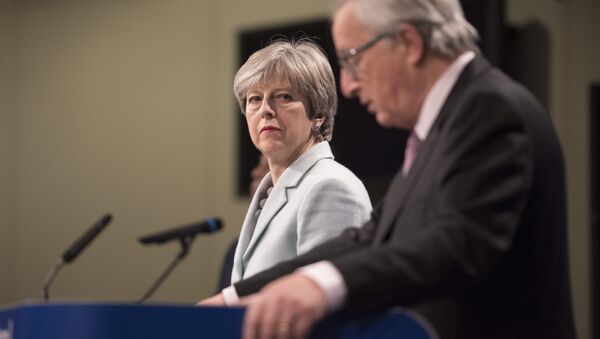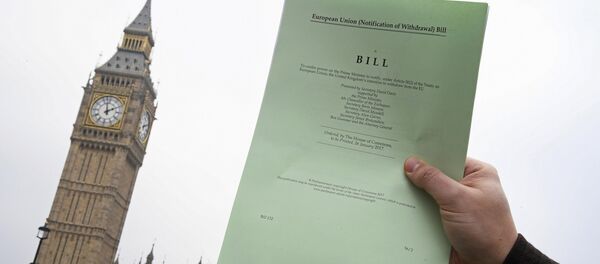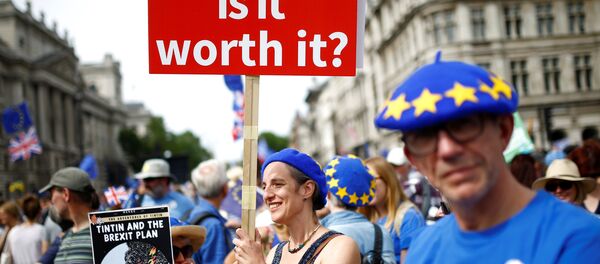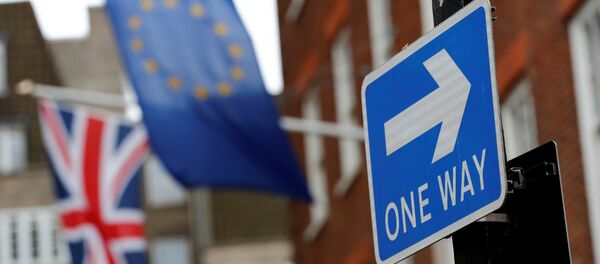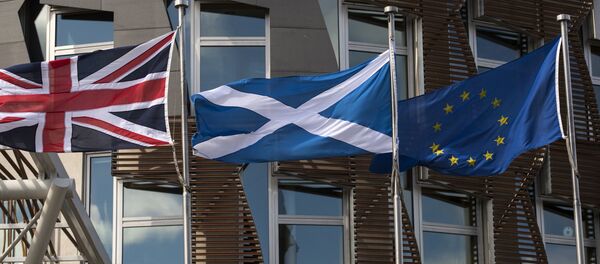The EU commission published the 585-page draft document Wednesday, which states that UK and EU will access each other's markets based around the principle of equivalence, Sputnik reported. Notably, the draft document avoids the dreaded "hard border" between Ireland and Northern Ireland, the latter of which is part of the UK.
Leaked communications between European Commission officials obtained by the Daily Mail on Wednesday noted, however, that Britain would stay in the customs union and that Brussels would "retain all the controls" in their relationship with London.
"We should be in the best negotiation position for the future relationship. This requires the customs union as the basis of the future relationship. They must align their rules, but the EU will retain all the controls. They apply the same rules. UK wants a lot more from future relationship, so EU retains its leverage," deputy chief negotiator Sabine Weyand said, Sputnik reported.
Radio Sputnik's Loud and Clear spoke with British economist Steve Keen, author of "Debunking Economics," about the deal and what exactly it means for the UK.
Keen said he thought May's summary of the deal was right, adding that it was "the closest economic cooperation you can get without freedom of movement."
"She's trying to hit the sweet spot between the people who are rabid Brexiters and those who are rabid Remainers," Keen said. "The Brexiters, the main complaint they've had apart from sort of, issues of sovereignty, is free movement; that's what's led to a lot of the opposition in the declining, what used to be the industrial heartland of the UK. So this stops free movement. It enables people who had some residency — you know, EU citizens living in the UK and vice-versa — to continue that, but it also maintains part of the customs union, and it's trying to avoid a hard border in Northern Ireland, which is probably the most contentious part of all, and frankly I think it's the part which has forced the EU to be reasonable about this and agree to preventing one of the so-called pillars of the European Union, which is free movement of labor and capital."
What that means is, Northern Ireland will effectively stay inside the EU. The majority-Protestant region remains separated from the predominantly Catholic Republic of Ireland, with which it shares the island, following a bitter civil war in the early 20th century over the question of independence from the British Empire. That conflict has periodically erupted in Northern Ireland, most notoriously during the time known as The Troubles, when from 1968 to 1998, Catholics and Irish nationalists pressed for reunion with Ireland and British Unionists attempted to stay part of the United Kingdom. The Brexit arrangement, Keen said, was "to prevent that level of conflict from being triggered once more."
Those Unionists became a key part of May's government last year when she called a snap election that, instead of destroying the Labour Party as intended, resulted in her Conservative Party losing its absolute majority in Parliament and becoming dependent on the Democratic Unionist Party (DUP) to maintain a government via a confidence and supply agreement.
Keen noted that since the DUP, which staunchly opposes membership in the EU, hasn't been included in these talks at all, it was possible they might object to staying in the customs union and use their position in government to "vote to depose Theresa May."
That could introduce other conflicts, such as that within the Labour Party, in which the Blairite faction still seeks to remove party leader Jeremy Corbyn from his position, and which Keen said would behave in that situation based more on "how they want to shaft Jeremy Corbyn and get back to a neoliberal Labour Party than it [would have] to do with the deal itself."
Another issue immediately after the June 2016 referendum was Scotland, which voted almost uniformly to stay in the European Union. However, Keen said he thought that May's deal to keep the entire UK in the customs union would weaken any centripetal forces that might further fan a Scottish nationalist drive for independence.
Still, regardless of the customs union, Keen said that "pretty much the status quo" would persist as far as the dominance of British banks, because "what really gave the Brits their strength in the finance sector was British law and the English language, and that was always going to be case. If you're going to move financial sectors from London to Frankfurt, as people were saying, you have to have operations under German law, which is nowhere near as favorable to corporations as British law is, and change the language as well, so the main advantages really have nothing to do with if Britain's a member of the European Union."
All in all, Keen said for people in Britain, "I don't think a great deal will change," aside from the notable end of free movement, which he noted defuses the nativist argument that Eastern Europeans are coming to Britain to take advantage of its welfare state. "I think it takes the pressure off" the Brexit case he said, but added that he'd "rather gamble on a roulette wheel" than predict whether the deal will "actually get through British politics."
